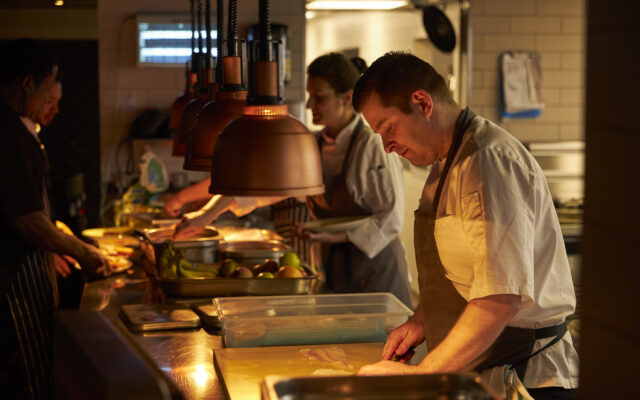By Gary King, MD of Collins King & Associates
It’s news to no one that hospitality is going through a tough time. UK restaurants are going bankrupt at a faster rate than during Covid* and this all has an impact on staffing.
There is currently a severe shortage of junior chefs in all areas of the hospitality industry, caused by both the pandemic and Brexit where many international chefs – the backbone of the British hospitality industry – returned home. Following Covid, we’re yet to see the return of Australian and New Zealand chefs, although longer term we do expect their return.
But this is not solely an immigration issue. This major shortage across the board is caused too by Britain’s failure to develop enough of our own chefs. Hospitality – and cheffing in particular – gets a lot of publicity from shows like MasterChef and the Great British Bake-Off, but the industry is not sold at school level. Children coming to the end of their school education have never been encouraged to pursue hospitality careers and this needs to change.
Even if we started really pushing hospitality careers tomorrow, it would take a minimum of 2-3 years for the tides to turn. There is no quick fix to this solution.
I undertook a traditional City & Guilds 2-year Chef course, getting hands-on experience in kitchens and working my way up through the ranks. There are a variety of routes available to young people. Students can still train either full or part-time on college courses, or on part-time apprenticeships in kitchens run by employers.
Many colleges offer two-year full-time courses offering training on all the skills a chef would need to master. Alternately, a one year full-time alongside part-time work on day release into kitchens offers students the hands-on experience that gets them up and running in work right away.
At Collins King & Associates, we’re doing everything we can within the parameters available to us. As a result of the current state of cheffing, a lot of the positions we are now handling are more senior. We’ve had to come away from the more junior roles as the bank of chefs available simply aren’t there, or they move too frequently for our model to work.
Unfortunately I see this as an obstacle for the foreseeable future, as only now operations are beginning to fully open, even in the face of a cost of living crisis. In the short term, I would hope for our government to change the rules around the Working Visa for these roles that fulfil a vital British industry, as well as in the short term, with much more focus on training up home grown chefs.


